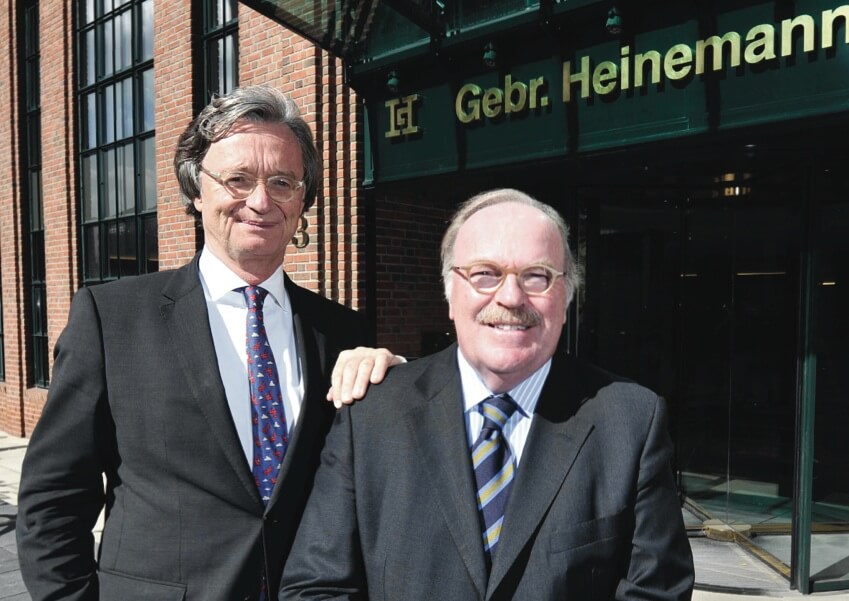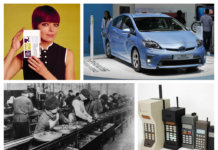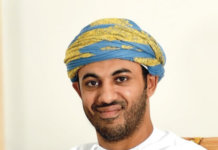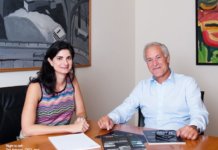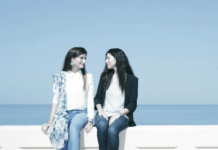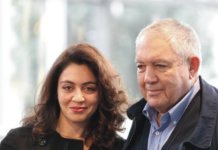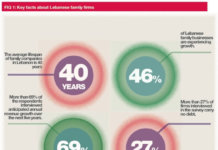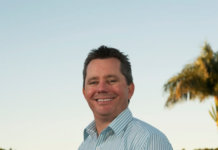The Tale of Gebr. Heinemann
Anyone who has travelled by plane knows the great temptation which awaits after having completed the all too often stressful routine of the security check: The guilt free experience of duty free shopping. Most of us have succumbed at some point or other to the well-lit and attractively arranged product ranges. Behind the power of conviction that makes us buy products that we see on airports, on board a plane or a ship, operates the burgeoning travel retail market. One of the most important players in this industry is a family business: This is the tale of the Gebr. Heinemann.
The firm’s story began over a century ago when in 1879 a young man named Heinrich Heinemann left his Northern German village and moved to the great port city of Hamburg. Once there he saw an opportunity, which would form the cornerstone of prosperity for the following generations of his family. The city’s free port provided the ideal space for the storage and movement of goods from which Heinemann began his business as the supplier of duty free commodities such as tobacco and spirits to ship chandlers.
Fast forward 130 years and four family generations later, Gebr. Heinemann is today one of the top five players of the travel retail market and still a family firm. With over 5,500 employees, (wholesale) clients in over 100 countries and the patronage of over 30 million costumers annually, Gebr. Heinemann not only serves as a distributor of duty free commodities to clients all over the world but has since expanded into consulting and the provision of their own retail shops. While the family never left its initial business of supplying to ships and cruise boats, most of the Gebr. Heinemann fortune came from servicing the air travel industry.
[ms-protect-content id=”4069, 4129″]
Meet Gebr. Heinemann
In Hamburg the Gebr. Heinemann family business operates from its conveniently located headquarters found within the historic port city. About a 10-minute drive from the firm’s modern red-brick office building is the Heinemanns’ Allermöhe logistics centre. The gleaming white building harbours a well-oiled organisation which dispatches more than 50,000 products daily to retail customers all over the world. The assembly lines combine the products (mostly perfumes, spirits, tobacco and other luxury products) into customised bundles, which are distributed to airport storefronts and on cruise ships, ferries or border-shops. The speciality of Heinemann is the highly bespoke services they provide to even their smallest retail clients due to boasting of an entire floor of the Allermöhe centre which is dedicated to handling orders which are composed of single items of each product category. The multi-layered operation runs remarkably smoothly. The 500 factory workers joke and laugh together, seemingly none of them impressed by the goods they are handling day to day, though to the outside observer the sight of Hermès perfumes and Chanel bags at this scale is rather overwhelming.
We are told that loyalty to the company is so consistent that theft and misconduct hardly ever occur. It is easy to believe as even though Gebr. Heinemann is a company with a multi-billion dollar turnover and one of the top five travel retail companies in the world, the overriding sense of modest consistency allows for a grounded atmosphere. This has left room for a friendliness that, as everyone confirms, is due to family-ownership. The distribution activities of Gebr. Heinemann are further expanding with a new logistics centre, which has just opened near Frankfurt as the family further expands its client base around the world.
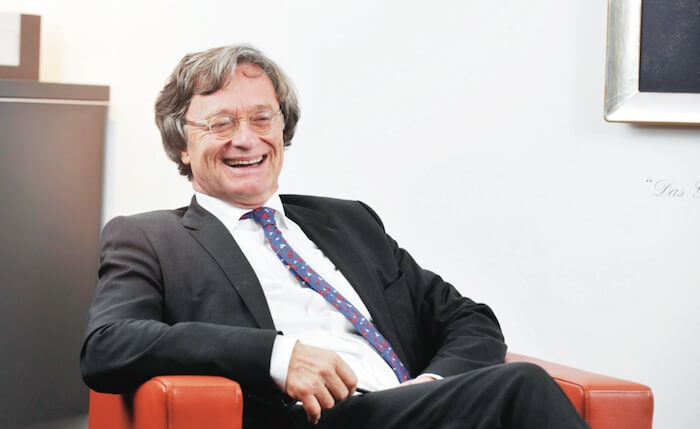
A lesson in history
Gunnar and Claus Heinemann are fourth generation family members of Gebr. Heinemann and direct descendants of its founder Heinrich Heinemann. The two gentlemen, who have led their forefather’s legacies to unexpected heights over the past two decades, are based in the company’s Hamburg headquarters, a massive structure positioned just next door to Hamburg’s International Maritime Museum and its ancient displays of the German city’s sea faring history. The beginnings of the Heinemann success story began right in the port, making the two buildings appropriate neighbours. When asked to elaborate on their family history Claus points at Gunnar and says: “He is the family historian.” Gunnar pleased by this informal title launches into telling the story that began with two brothers in 1879.
“Heinrich Heinemann, our great-grandfather, and his brother Carl Friedrich began by supplying commodities to ships’ chandlers. Carl Friedrich soon left for England where he attempted to set up a leather goods department. We never really heard much of him again. The family business was continued by our great-grandfather Heinrich who had four sons. One of them left for the US and we never heard from that part of the family again either. Heinrich’s second son died in World War I. His two remaining children, Richard and Otto, both joined the family business but were pulled into the war as well. While on the frontlines the two brothers received a letter from their father who set out in this correspondence what was to become the leitmotif of our family business: “The welfare of the company must be our first law,” Gunnar smiles pointing over his shoulder at the oil portrait of his great- grandfather Heinrich that still emanates the patriarch’s distinct authority. The founder is described by his great-grandsons as a strict but sensitive man and the family motto he set out a century ago still holds true for Gunnar and Claus as the latter confesses: “I see my cousin more than I see my wife at times.” After coming back from the war, the brothers of the second generation, Richard and Otto, picked up work with their father who died a few years later. “Richard Heinemann died in 1937 leaving his brother Otto in charge who promptly instated his son Helmut, Claus’ father, who went to war and rejoined the business in 1945,” expands Gunnar. “My own father Horst joined after being freed from captivity in 1948. So you see, Claus and I have the same great grandfather, and our fathers were cousins.”
Growth and dual leadership
Gebr. Heinemann today is a company with over 5,500 employees, which supplies over 100 countries. However, when looking at its history, one may notice that most of this considerable size has been attained over the past 20 years under the management of the two men currently at the helm. “Our fathers and their fathers were faced with very turbulent times. They survived two world wars and the recessions that came with them. You see, our business was all about supplying commodities to ship chandlers and while we expanded this core activity, we did not diversify, we did not make great spurts of growth until after World War II,” explains Claus.
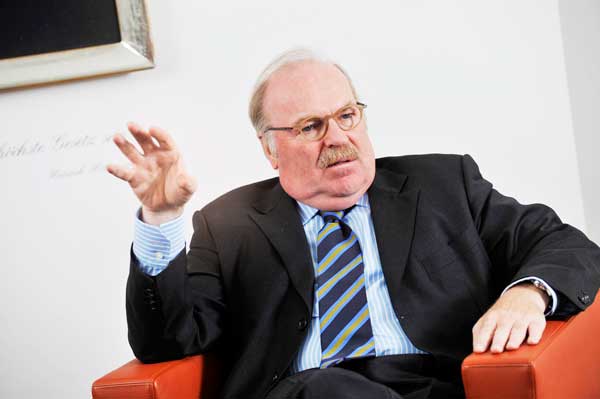
“Our competitive advantage was always defined by our location. The free port of Hamburg allowed us to stock and move commodities tax free and so our business naturally centred on this activity. It is in fact the greatest free port in Germany and one of the largest in all of Europe. This is how the duty free concept was conceived,” explains Gunnar. Both cousins agree that recognising this competitive advantage linked to their location had been one of their great-grandfather’s greatest achievements. “We always knew that we would preserve this advantage. We had this distributor role for many decades. Then came World War II, which was devastating. When our fathers came back from the war they had to start from scratch,” adds Claus.
Just how Gebr. Heinemann was catapulted toward becoming the international travel retail giant, which it is today is easily explained according to the cousins: “It’s all about the planes,” declares Gunnar with his characteristic, cheerful smile. “With air travel a whole new market opened up for us. Providing travellers with the duty free experience became an integral part of the travel experience. It opened a totally new avenue of business. The demand from airports for our services became significant.”
“From 1949 we experienced steep growth because we started catering to airports. Another pivotal point was when one of our non-family executives, Mr. Diehl, expanded our product range to include perfumes and cosmetics. At that point we were still a distributor. Our retail activities only began in 1969 when we launched our first own store at Cologne Airport.” With this shift Gebr. Heinemann embarked on a widely different strategy, positioning itself ahead of the competition based on the range of products provided.
Today, Gebr. Heinemann’s distribution and logistics services are only one part of what the family business considers its principal business. “It is not just about getting the goods to the right people at the right time. Many can do that. The fact that we are providing not only distribution of the goods to over a hundred countries, but that we are providing our clients fully integrated solutions for their own retail spaces including promotional real estate and planning retail offers key advantages. Another upside we have is that we are probably the only family-owned company of this size in the travel retail market. Our family values are Hanseatic: a word is a word and a handshake is a handshake.”
This attitude of cooperation and strong family values has been further shaped by a dual leadership approach. There have always been two family members at the head of Gebr. Heinemann business. “Gunnar and I are only one year apart. We went to school together. Our sisters are the same age. There are many things to link us and that have made us a strong team,” says Claus.
The pair started work in their family business in 1979 on its 100th anniversary. The dual leadership in the Heinemann family business has lasted for three generations and both Claus and Gunnar are more than convinced that this is what has driven their success. “Our fathers decided in favour of Gunnar and me to take over. We both have very competent sisters but they both chose different avenues so it fell to us and fortunately we were both happy to do it,” states Claus. “Working together in this way, stemming from different branches of the family, has shaped our attitudes towards outside partners as well. We always had to strive for balance because there have always been two of us in a leading role. It taught us to shun feelings of superiority. We understand that we need to learn from others.”
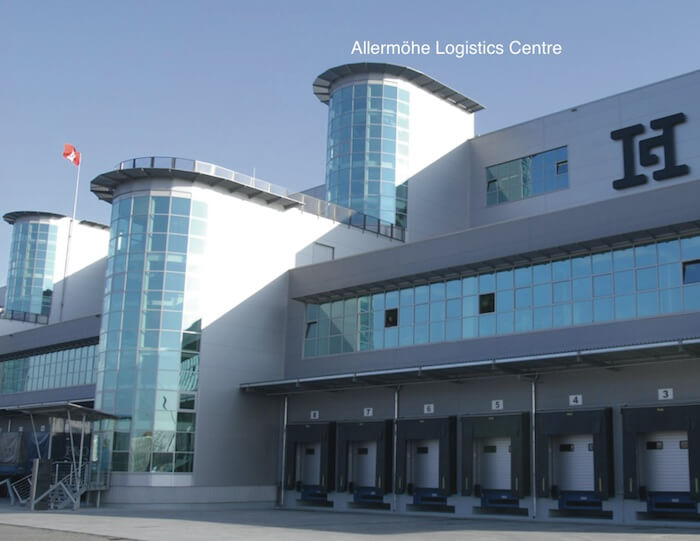
Big changes
In 1999 the European Union’s taxation policies threatened to all but eliminate the duty free market. This forced Gebr. Heinemann to think differently. The cousins had initially feared that the new EU mandate would destroy their client base and make people feel like there was no advantage in shopping at airports anymore. “The real duty free market within Europe does not exist anymore. We had to find a sales concept that would still make purchases more advantageous at the airport than inside the country market. Instead of relying solely on the duty free market, we have since expanded into the travel retail market. The travel market starts after the security check at the airport. It was like defining new confines of our market, which happened to include more consumers than ever before. Everyone took over this concept. We really made a mark on the whole industry,” says Claus, describing one of the businesses greatest achievements. “When your business is under threat, you wake up,” explains Gunnar. “We achieved a lot more through the pressure we felt. You should never hold on to tradition at the wrong moment. You must change and adapt. The new EU policies could have meant cutbacks for our business, instead it meant exponential growth because it forced us to rethink things. We expanded into supplying the travel retail market but only started branding our own shops ‘Heinemann’ from 2008.”
The two cousins describe their family business as a fast mover. “We were distributors and served our clients who were part of the travel retail market so we hesitated to become retailers ourselves because we did not want our clients to feel we were competing with them. However, this transition became necessary for us,” emphasises Claus. As soon as they overcame the hesitation, the family moved fast. “Our clients now benefit from the additional experience we have in retail and we consult with them on how to set up their shops and bundle their goods for them,” adds Gunnar.
Legacies and the next generation
Quadrupling in size over the last 20 years for Gebr. Heinemann has proven to be no mean feat. “We experience positive stress,” laughs Gunnar when we ask him whether he and Claus ever felt overwhelmed. “We have great employees and it is not hard to motivate them. We are after all in a very international and exciting business, which deals mostly with products, which are part of the luxuries of life. What is there not to like?”
“We do get into more heated discussions with our executive management, but we have a good conflict culture which allows us to find compromises,” admits Claus. Both cousins know most of their employees by name and walk the corridors of their headquarters shaking hands with everyone. “We want people to think differently. The company needs that. Imagine if we were all the same,” offers Gunnar.
So what kind of “different thinking” will the next generation bring? Claus has a daughter and two nieces and Gunnar has two sons and one niece, which makes it nearly certain that the 5th Heinemann generation will be spearheaded by a male and female descendant for the first time in the company’s history.
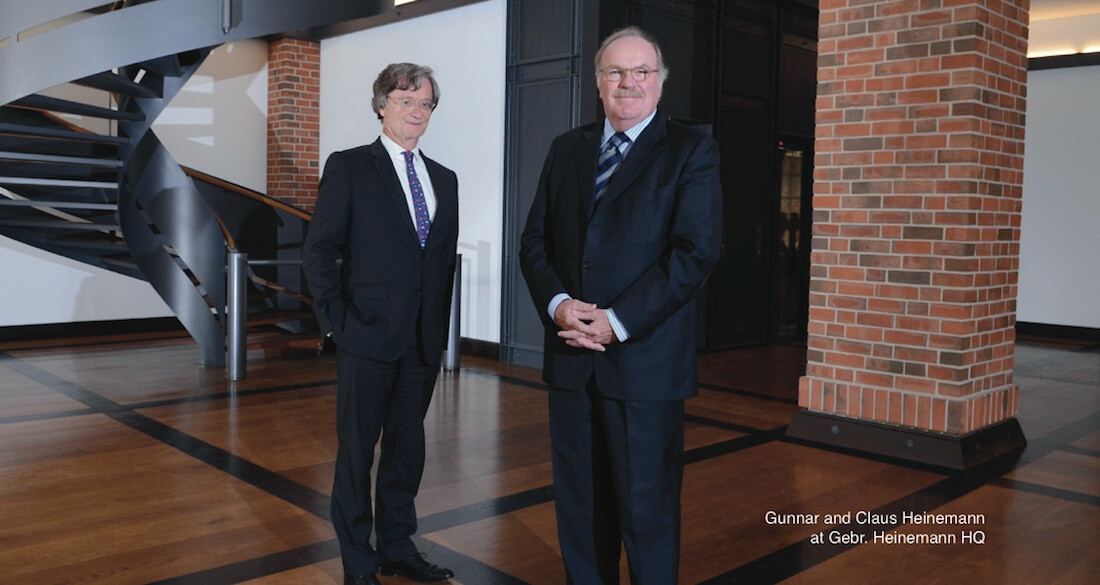
“They have to want it,” answers Gunnar frankly when asked whether the next generation will be encouraged to join. “My younger son Max joined us a few years ago and is now in charge of our Asian operations. It is great for him to be further away from us so as to be able to learn the ropes without his uncle and father hovering over him,” he chuckles. “I hope that either my daughter or one of my nieces will join too and they are all educated and interested so our hopes are high,” adds Claus contentedly. Gunnar and Claus are not keen on pretence and have been very clear with the next generation. “They have to understand that working in the business is more than just a job, it is a full time vocation that demands sacrifice,” the cousins jointly declare.
This conversation clearly sparks memories for both cousins of the time when they joined the company. Says Claus: “It was not always easy for me to work with my father. The differences between our generations led to clashes. I used to work more with Gunnar’s father and Gunnar used to work more with mine.” The cousins smile at each other in a knowing way remembering how they managed this balancing act when their parents were in charge. “It is only possible to have a family business when the older generation understands that it has to let go at the right moment,” says Gunnar.
In terms of family governance the Heinemann family is organised rather informally, which sets a contrast to their tightly run business. “So far everyone has been happy with the way things have been arranged, but the family is growing and we understand that we will have to invest more time in structuring the family side as well,” emphasises Claus. “Everyone lives off of the business and so everyone ought to take an interest in it.” Odds are that Gunnar and Claus Heinemann will tackle this hurdle when they come to it with their usual good-humoured manner and, most importantly, together.
Tharawat Magazine, Issue 24, 2014
[/ms-protect-content]



